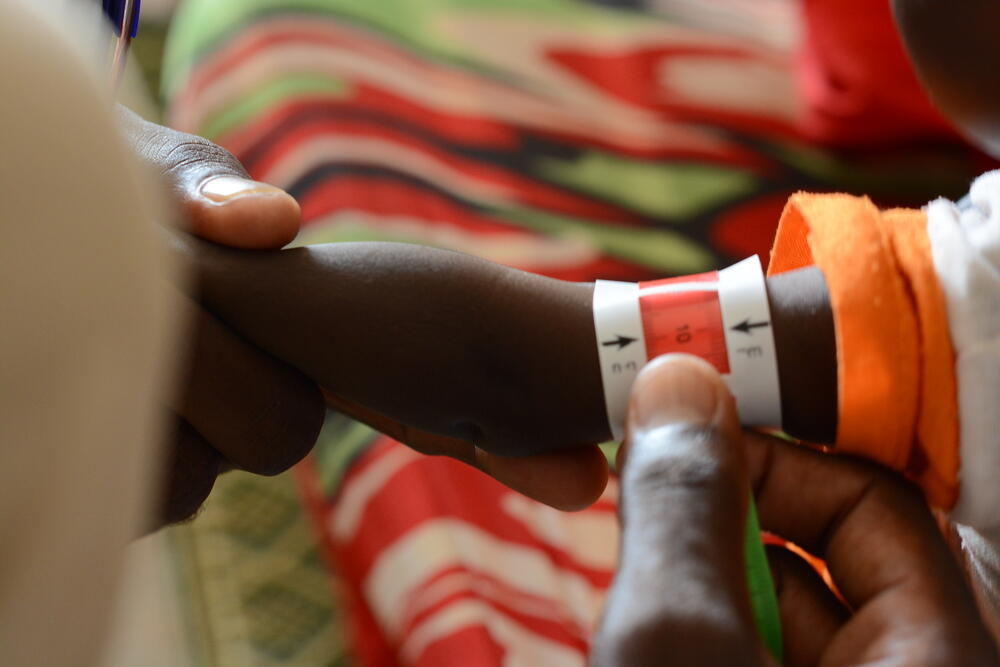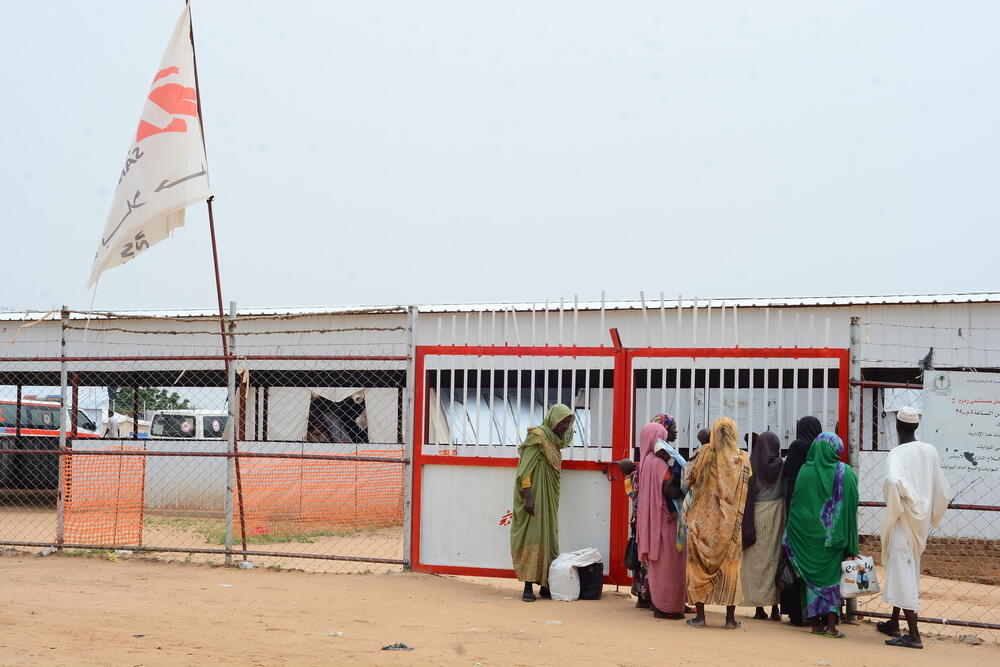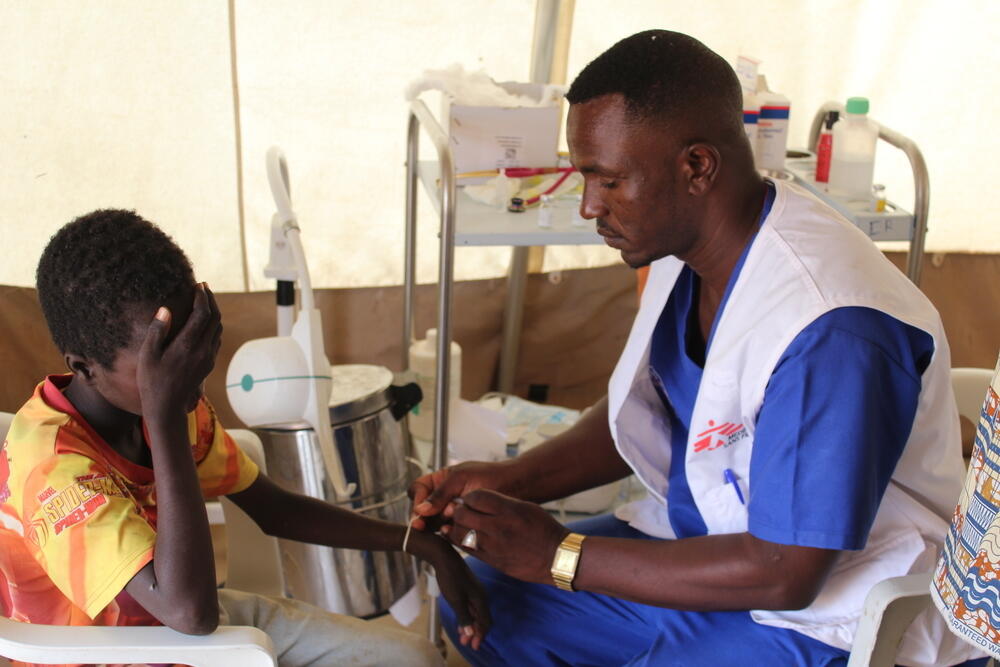Sudan: “Thousands of children will die” unless the UN acts on Zamzam food crisis
A catastrophic malnutrition crisis at a camp for displaced people in Sudan’s North Darfur state is deteriorating.
Results from a mass nutrition screening carried out by Médecins Sans Frontières / Doctors Without Borders (MSF) and Sudanese health authorities indicate the situation at Zamzam Camp is getting worse for the up to 500,000 people seeking safety there from the ongoing war in Sudan.
MSF urges the United Nations and the international organisations negotiating humanitarian access to consider all options that will quickly deliver food and essential supplies in the area, including by airdrops.
“Not only do the results confirm the disaster that we and other stakeholders have been observing and alerting on for months, they also indicate that every day things are getting worse and we’re running out of time,” says Michel Olivier Lacharité, Head of Emergency Operations for MSF.
“We are talking about thousands of children who will die over the next few weeks without access to adequate treatment and urgent solutions to allow humanitarian aid and essential goods to reach Zamzam”.
Food and medicines are blockaded
Despite announcements that gave hope for positive developments, such as following peace talks in Geneva, no significant amount of humanitarian aid has reached people in Zamzam Camp and the nearby conflict-hit city of El-Fasher. This is despite an IPC Famine Review Committee concluding that famine conditions were prevalent in the area on 1 August this year.
Most supply roads are controlled by the Rapid Support Forces who have made it all but impossible to bring therapeutic food, medicines and essential supplies into the camp since the intensification of fighting around El Fasher last May.
There's no more time to waste if thousands of preventable deaths are to be avoided.
Among the more than 29,000 children under five years old screened last week during a vaccination campaign in Zamzam Camp, 10.1 percent were suffering from severe acute malnutrition, a life-threatening condition, while 34.8 percent were suffering from global acute malnutrition, which will evolve into the more severe form if not treated quickly and effectively.
“The malnutrition rates found during the screening are massive and likely some of the worst ones in the world currently,” says Claudine Mayer, an MSF medical adviser.
“It’s even more terrifying as we know from experience the results are often underestimated in the area when we use only the mid-upper arm circumference criteria [an essential tool for assessing malnutrition] like we did here instead of combining it with measuring weight and height.”
A previous MSF mass screening in March 2024 revealed an 8.2 percent severe rate and a 29.4 percent global rate, which was already twice as high as the 15 percent ‘alert threshold' set by the World Health Organization.
Breaking point
The only food available in Zamzam is from pre-existing stocks, which are not sufficient for people living in the area. At the same time, food prices are at least three times as high as in the rest of Darfur.
Fuel prices are soaring as well, making it very difficult to pump water and run clinics that rely on generators for electricity.
Our staff responding at Zamzam report that for many people, it's impossible to rely on more than one meal per day.
“In such a dire situation, we should be scaling up our response,” says Claudine Mayer.
“Instead, running critically low on supplies, we are reaching breaking point and were recently forced to reduce our activity to focus solely on children in the most severe conditions.”
“This means we had to suspend treatment for the less severe forms of malnutrition, which represented 2.700 children, and to put an end to consultations provided to adults and children over five years old, which represented thousands of consultations every month”.

Help us prepare for the next emergency
Zamzam Camp is estimated to host between 300,000 and 500,000 people, many of them displaced many times over, who are trying to flee the war that has torn apart the country since April 2023.
In El Fasher, where many of the displaced people used to live, only one hospital remains partially standing after the others were damaged or destroyed in the conflict.
“Due to these unconscionable blockages on supplies, we feel like we are leaving behind an increasing number of patients who already have very few options for getting lifesaving medical care,” says Michel Olivier Lacharité.
“If the roads are not an option for getting massive quantities of urgent supplies into the camp, the United Nations should look at every available option.
“Delaying these supplies means causing more deaths – thousands of them, among the most vulnerable.”
MSf and the crisis in Sudan
On Saturday 15 April 2023, intense fighting broke out across Sudan with a wave of gunfire, shelling and airstrikes.
The violence between the Sudanese Armed Forces (SAF) and the Rapid Support Forces (RSF) has trapped millions of people in the middle of an unexpected conflict. Many have been forced to flee their homes while access to essential services such as healthcare has become increasingly difficult.
Médecins Sans Frontières / Doctors Without Borders (MSF) teams already working in Sudan have been responding to the crisis since its first moments.


